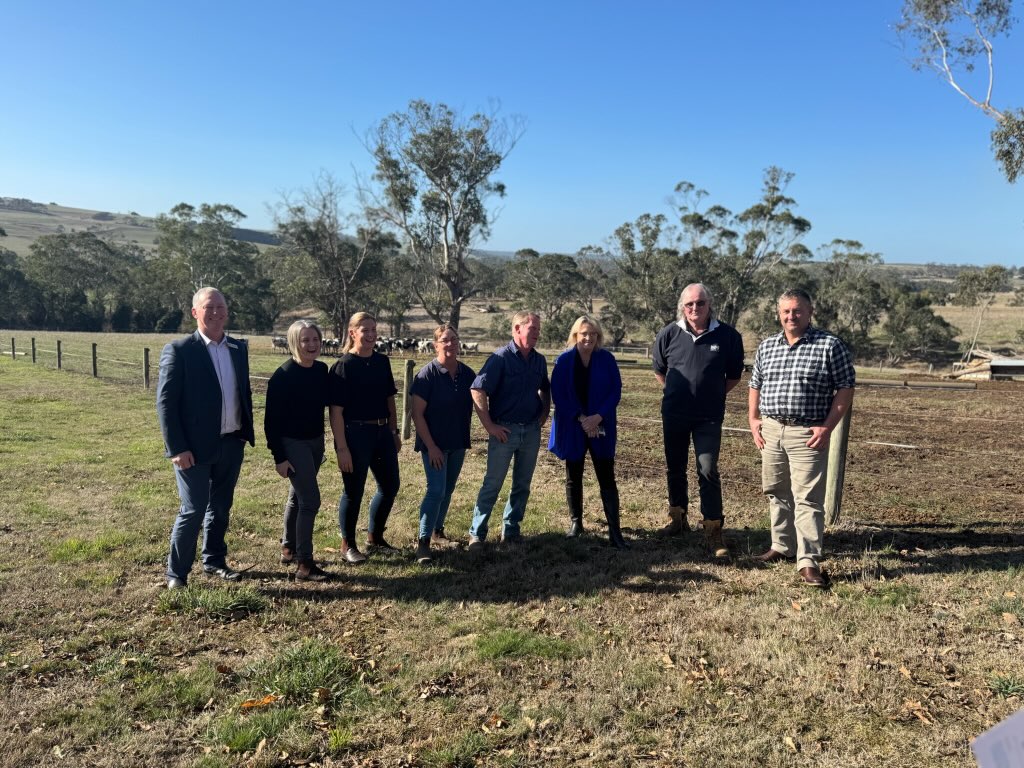
Fresh from meetings with Victoria’s Minister for Agriculture yesterday, Australian Dairy Farmers has issued an urgent plea to state and federal governments for meaningful support for the sector.
More than 40% of Australia’s dairy farmers are in drought, many of them battling the driest conditions on record, including in South Australia, South West Victoria, and extending into Gippsland and Northern Victoria.
Meanwhile, dairy farmers in New South Wales are cleaning up after a 1-in-500 year flood.
Farmers face crippling financial situations, with skyrocketing costs just to keep their cattle fed and watered, coinciding with indications milk prices for the coming season will be weaker than anticipated.
ADF President, Ben Bennett, said farmers need urgent action to address the impacts on livestock, farmers and regional communities.
“Today we call for immediate crisis support, including feed and water transport subsidies, cash grants and low interest loans and the activation of what’s known as ‘Category C and D’ disaster support measures in conjunction with the Commonwealth,” Mr Bennett said.
“Tackling the ‘cash crunch’ for farmers and communities will not only keep our farmers producing milk, but also benefit the regional communities where they shop.”
Mr Bennett said that as feed, fodder, hay and silage runs out, there is an urgent need to look to alternate sources of stock-feed to tide farmers through the winter months.
“There is a simple but pivotal role government could play in underwriting stock feed imports from overseas, in order to give the commercial market the confidence to import more stock feed and increase supply to get us through the winter months.
“ADF is working closely with industry stakeholders – including stock-feed importers, transporters, and the Department of Agriculture, Fisheries and Forestry – to increase the availability of imported stock-feed.
“One viable option is Palm Kernel Expeller (PKE), a high-protein, high-fibre feed source used extensively in the New Zealand dairy industry.”
Mr Bennett said bringing in more PKE and other feeds from overseas would offer vital feed security through winter.
“The commercial market needs confidence – and this is where government action is critical,” Mr Bennett said.
“With freight subsidies and underwriting support, we can get more feed into the country quickly and give farmers a fighting chance to sustain their livestock.
“Without it, we risk animal welfare impacts and long-term damage to the dairy industry’s viability.
“In the interests of getting this feed on-farm as quickly as possible, we’d work with government officials wherever possible to expedite the inspection of these shipments upon arrival.”
ADF has used meetings over recent weeks to stress to governments the importance of taking action to safeguard production over the longer-term.
“Things like investing in water infrastructure projects, particularly the proposed stock and domestic water pipeline in South-West Victoria, only requires political will, but can make a world of difference to our food producers and local communities.
“Such proactive action by governments would provide certainty to farmers and community for the future. It would provide the very preparedness and resilience government promotes, while also securing food security in some of our largest dairying regions.”
Five things governments can do to help dairy farmers
Immediate Crisis Relief
1. Deliver feed and water transport subsidies to address shortages
2. Deliver cash grants and low-interest loans to address the cash-crunch
3. Activate Category C and D disaster support in conjunction with the Commonwealth for flood- and drought-affected areas
Targeted Industry Support
4. Underwrite stock feed imports to give the commercial sector the confidence to increase stockfeed supply through winter
Long-Term Resilience Building
5. Co-invest in water infrastructure, including a commitment to the South-West Victoria water pipeline project
